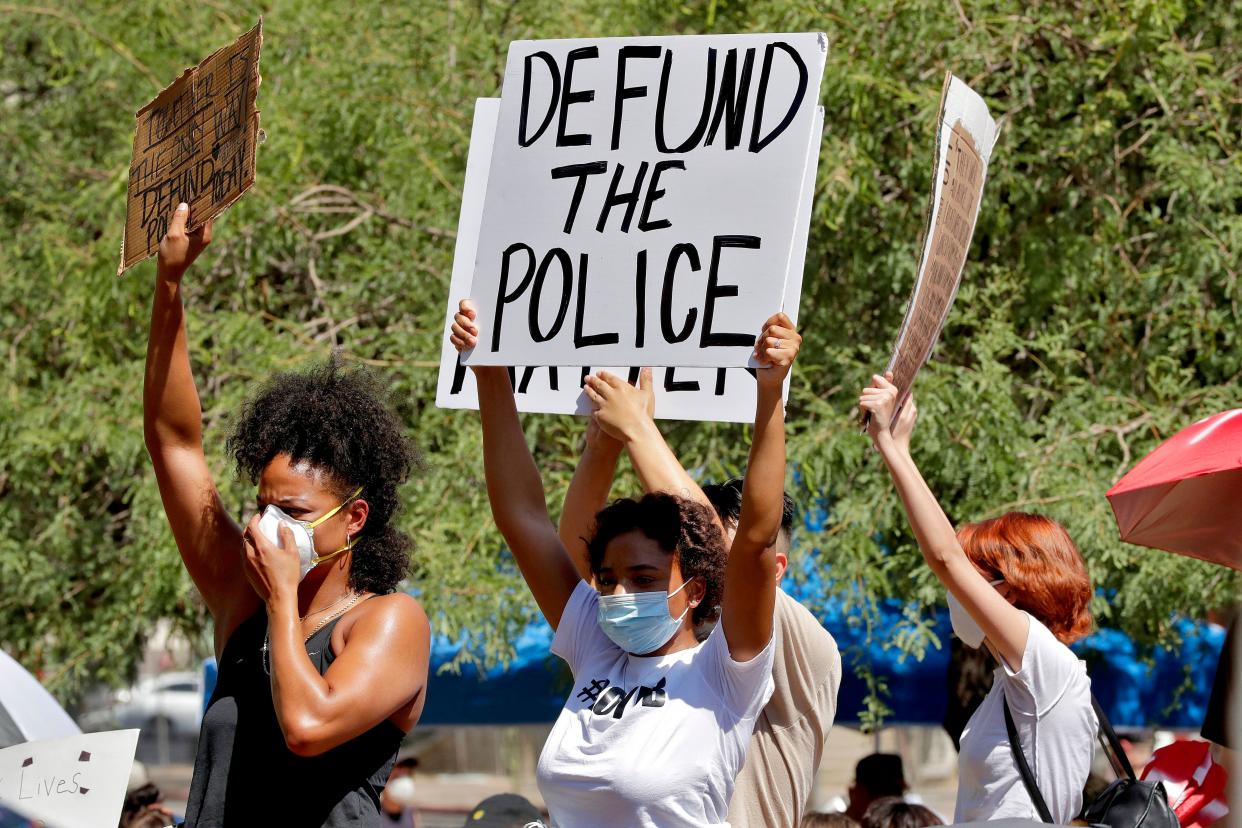Don't Use Domestic Violence Victims To Derail Police Reform

As activists demonstrate across the country to protest racism and police brutality, the call to “defund the police” has crystallized into a rallying cry. Instead of injecting more money into police department budgets, the argument goes, divert funds to community programs that directly support those individuals who most often end up in crisis situations with police: homeless people, people with mental illnesses, and those with substance use disorders.
It’s a compelling idea, backed by researchers, criminal justice reformists, and a small cohort of progressive lawmakers. Critics of this approach, however, derail the conversation using a time-honored method: pointing to female victims of violent crime. Who, they ask, will protect women against domestic abuse and sexual violence, if not the police? The implication is clear: If you don’t support police, you must not care about women’s lives.
Beneath this question lies a faulty assumption ― that police, as they are currently constituted, are equipped to protect women from abuse. It also ignores the testimony of leaders in the movement to end violence against women, who are reexamining their reliance on the criminal justice system and are actively seeking new approaches.
“There are survivors in many communities who don’t see law enforcement as a viable option for themselves and their families,” said Jacquie Marroquin, the director of programs at the California Partnership to End Domestic Violence. “The domestic violence field has been grappling with the question of who have we left behind? And that includes grappling with the unintentional consequences of the criminalization of abuse.”
Today, many domestic violence victims are already hesitant to involve the police, and often decide against it. Of the 847,230 known incidents of intimate partner violence in 2018, only 45% were reported to police, according to a Bureau of Justice Statistics report.
It does not take much imagination to work out why....



